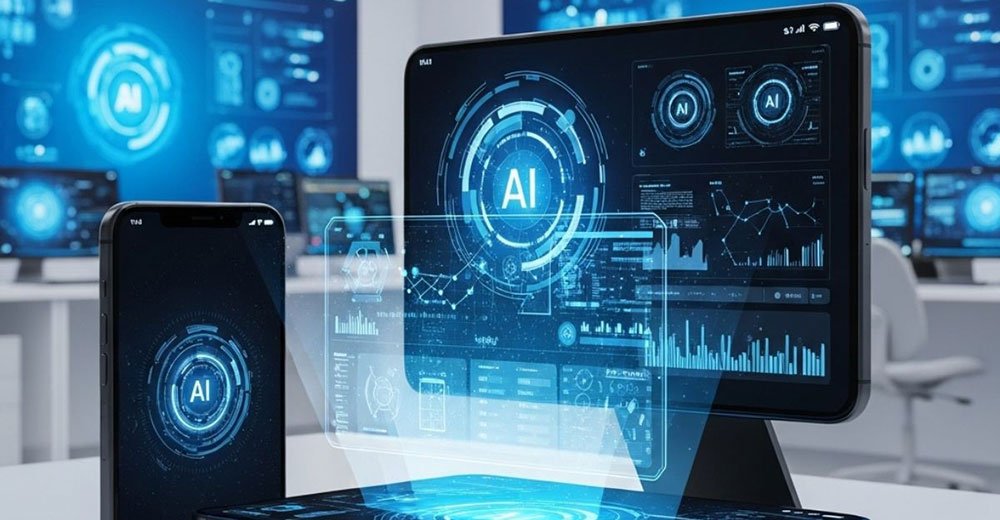
Jony Ive Joins Forces with OpenAI
Design legend Jony Ive, known for shaping Apple’s most iconic products, has sold his hardware company to OpenAI — a move that could spark a new era in AI-powered devices. While AI has evolved rapidly in software, hardware has lagged behind. Ive’s design vision, combined with OpenAI’s intelligence, may finally bridge that gap.
Why AI Hardware Hasn’t Worked — Yet
Early AI gadgets like smart speakers and smartwatches often felt clumsy, failing to deliver true intelligence. The issue? Software outpaced hardware. Ive’s deep understanding of seamless, user-centered design might be the missing ingredient.
The Great Merge: PCs and Smartphones
For years, PCs and smartphones have existed side by side, each with its strengths and limitations. But an AI-native device — one that shifts effortlessly between being a mobile companion and a full workstation — could finally unite them.
Rethinking Productivity
Traditional systems like Windows and Office feel increasingly outdated. A new AI-powered interface could replace the old start menu and file-based workflows, making computing more intuitive, conversational, and personalized.
A New Kind of Device
Imagine a single device that adapts based on context — work, travel, home — driven by intelligent software that anticipates your needs. This isn’t just a new gadget. It’s a redefinition of what personal tech can be.
Intel’s Battlemage GPU: The Next Frontier in Gaming
Alongside these shifts, Intel is preparing to launch Battlemage — a GPU designed with AI in mind. Promising powerful performance at an accessible price, it could enable games with adaptive characters, evolving worlds, and personalized experiences.
Conclusion: The AI Hardware Renaissance Begins
With Jony Ive’s design insight and OpenAI’s intelligence, we may be entering a new chapter in tech — one where devices don’t just work for us, they work with us. The line between software and hardware is blurring, and the future looks adaptive, intuitive, and truly intelligent.

